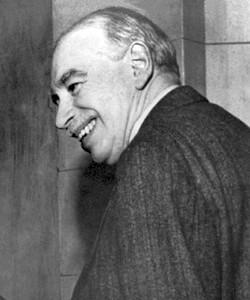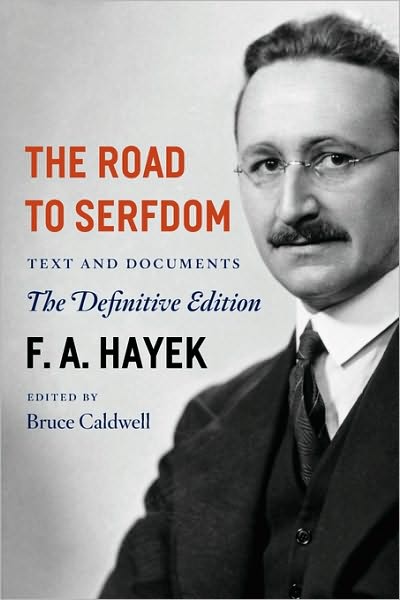Keynes and Hayek
by Andrew Boyd
Today, how different were they? The University of Houston's College of Engineering presents this series about the machines that make our civilization run, and the people whose ingenuity created them.
It's a shame but it's understandable. Complex stories get reduced to easily digestible nuggets. We miss the nuances, but then again, our brains have only so much space.
Consider the history of twentieth century economics. A pervasive undercurrent that continues to this day is the role of government in the economy: should government take an active role or simply leave markets alone?
On the side of government intervention stands the towering figure of John Maynard Keynes. In the opposite corner, we find lesser-known free market champion Friedrich Hayek. Both voiced strong opinions. But were they hardened advocates of extreme positions? Positions that popular rhetoric would have us believe?

We need look no further than Hayek's most influential work The Road to Serfdom. As the title suggests, Hayek believed that government intervention in the form of centralized planning stripped away individual liberties. He warned of "the danger of tyranny that inevitably results from governmental control of economic decision-making."

But he didn't rule out a role for government. In fact, he pointed to explicit areas where government intervention could prove beneficial. Among them: requiring a safe workplace; limiting work hours; dealing with the effects of deforestation and pollution; even sustaining a social safety net. Writes Hayek, "There is no reason why, in a society which has reached the general level of wealth ours has, that security should not be guaranteed to all, that is: some minimum of food, shelter and clothing, sufficient to preserve health." He even goes so far as to propose that government get involved with the creation of a national insurance program. "Nor is there any reason," he continues, "why the state should not help to organize a comprehensive system of social insurance in providing for those common hazards of life.''
Still, even though Hayek didn't reject government outright, The Road to Serfdomwas an unapologetic defense of free markets, partly written in response to Keynes' celebrated monograph explaining why free markets need government help. So what did the great Keynes think of Hayek's work? "In my opinion," wrote Keynes, "it is a grand book. Morally and philosophically I find myself in agreement with virtually the whole of it: and not only in agreement with it, but in deeply moved agreement." Like Hayek, Keynes believed in free markets. And like Keynes, Hayek believed there was a role for government. The two men weren't zealots of the extreme. They were men of integrity who differed over where to draw the line.
That's where the fully nuanced story begins. And, I'm afraid, where this three-and-a-half minute essay ends.
I'm Andy Boyd at the University of Houston, where we're interested in the way inventive minds work.
(Theme music)
Notes and references:
J. M. Keynes. The General Theory of Employment, Interest and Money. Cambridge: Macmillan Cambridge University Press, for Royal Economic Society, 1936.
F. A. Hayek. The Road to Serfdom: Text and Documents — the Definitive Edition. Chicago: University of Chicago Press, 2007.
N. Wapshott. Keynes Hayek: The Clash That Defined Modern Economics. New York: W. W. Norton & Company, 2012.
All pictures are from Wikimedia Commons.
This episode first aired on July 25, 2013.